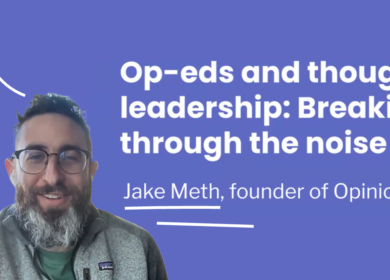
By Felice Tsui
The Hoffman Agency, San Jose
It’s no surprise that political communications are rapidly changing. This year’s State of the Union streamed live on YouTube for the first time, and Barack Obama participated in the first presidential AMA (ask-me-anything) in 2012.
Now, Medium is shaking up the blogosphere by giving politicians yet another non-media outlet to express their ideas. For instance, the White House posted the entire Fiscal Year 2016 Budget on Medium. Mitt Romney also announced that he was not running in the 2016 presidential elections on Medium.
But what exactly is it? Much like Blogger or Tumblr, Medium is a blogging platform that was started in 2012 by Twitter co-founders Biz Stone and Ev Williams. With its simple design that makes room for large-format photos, and a lack of advertisements and subscriptions, the platform is a melting pot for anyone’s Web content to be seen.
Medium is for thoughts that cannot fit in a 140-character tweet and belong in more long-form writing — like pieces featured in The New Yorker. That’s just the beginning of what appeals to politicians and interest groups.
Senator Bob Casey of Pennsylvania, Senator David Price of North Carolina, House Representative Beto O’Rourke of Texas as well as many others use Medium. They find that it is one more channel on the Web to echo their messages and reach other influencers who are looking for that curated experience.
Medium ultimately fills a communications gap for politicians like Casey, Price and O’Rourke. It’s like native advertising (i.e., an article on a news website that was paid for by a sponsor), but without the cost. Many may argue that there is a plethora of op-ed forums where politicians can publish their opinions, but we know it’s not the easiest task to actually place one. Again, we see how the beauty of Medium is not just on its interface, but also in how it allows anyone (including politicians) the ability to create and publish their own news.
Medium also supplies its users with a suite of analytics that allows them to see who is reading their content. The analytics package is an advantageous tool that can be used to understand an audience. Offices can refine political messages by seeing what was actually read — not what was just clicked on and ignored.
Thus, as politicians continue to circumvent the traditional press through new communication outlets such as Medium, they essentially become their own publications. It’ll be interesting to see how Web writing will continue to transform in 2015 and on, and how our role as PR practitioners will shift to accommodate these new mediums.

